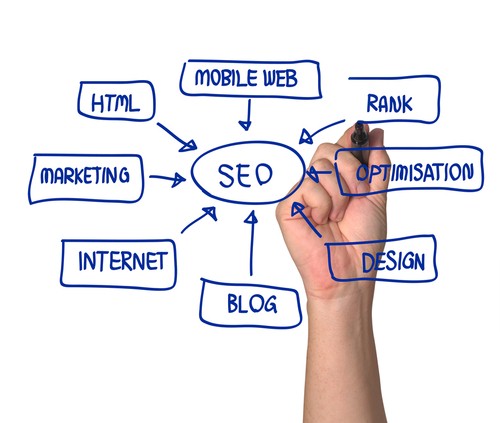What is the XaaS Everything as a Service Model
Everything-as-a-Service (XaaS) is a cloud computing term for various services and applications accessed on-demand over the Internet as opposed to being accessed on-premise.
In the past, digitization typically meant investing a chunk of hard-earned money into computer programs and hardware. This takes up space on the premises and must be backed up, maintained, and upgraded regularly, resulting in inefficiency.
However, since the beginning of the services revolution, everything has changed. Companies of every size can now use cloud-based infrastructure for practically all their technology requirements.
This is changing the way business is conducted, and it’s particularly effective for helping companies grow and scale.
The XaaS Model
Initially, we had software as a service (SaaS). Then came infrastructure as a service (IaaS), monitoring (MaaS), platforms (PaaS), and communication (CaaS), to name just a few service types.
Gradually, the amalgamation of all these services into a single, comprehensive option created “everything as a service,” currently known as XaaS. According to Deloitte Insights, this is a strategic and operational blueprint that has begun overturning most other accepted operational business models.
What XaaS Includes
It’s all well and good to say XaaS incorporates “everything,” but what exactly does everything mean? First off, it’s not limited to technology. What began as an overhaul of legacy systems has widened to support better business efficiencies, customer engagement, and employee oversight using new, updated methods.
XaaS is also redefining many of the fundamental goals of modernization. Instead of having the various functions operating in silos, companies can now set them up as a collection of horizontal services available across organizational boundaries. That means suitable application programming interfaces (APIs) can be used by several departments in a company, among other things.
For example, businesses can utilize a customer service module that enables the sales team to track a client’s past interactions with the company.
The IT department can also use this same module to manage service calls and the purchasing department to manage preferred vendors.
How XaaS Everything-as-a-Service Can Benefit Small Business
Smaller companies benefit exceptionally well from using Xaas, for several reasons, but the most significant of these advantages are:
Financial Efficiencies
Companies can achieve significant cost savings by no longer investing in multiple different software programs. In addition, from the hardware viewpoint, they not only avoid having to buy expensive server and storage equipment, but they no longer need to pay for space to keep it in. Small businesses can customize their technology environments to accommodate rapid changes in employee and customer needs.
Improved Productivity
In 2014, telecom network downtime worked out to an average of 32 seconds per service each year. This potentially added up to 526 minutes per year for enterprise-class solutions, representing an estimated cost of $11,000 per server. For small companies with a single server, a loss of that size each year can make the difference between survival and bankruptcy.
Stronger Cybersecurity
More than two-thirds (70%) of hacker attacks are aimed at small businesses, 60% of which close down within six months of a breach. This puts cyber-protection high on the list of must-haves for small business owners. Hackers know these companies are easy targets, partly because they anticipate weaker system protection as a result of fewer financial resources, as well as easier access to customer data and other assets.
Greater Agility
One of the main benefits of XaaS models for companies is undoubtedly the ability to be more agile, and the 2018 Flexible Consumption Models Study released by Deloitte states 75% of respondents felt having XaaS made it easier and faster for them to introduce new solutions. Meanwhile, 70% said it gave them the chance to use technological tools they would otherwise find too expensive to afford.
The benefits don’t end here, however; the real test is how enjoying those benefits enables small businesses to grow and thrive, and that’s where XaaS really has a lot to offer.
Growing a Small Business
To be successful in any business, companies need both profitability and growth. Scaling a business requires owners to put in place the right tools and mindset to take on significantly more orders and manage the processes required to fulfill them. This takes having the right systems, staff, technology, methods, and partners to generate and close the sales, deliver the goods and services, and manage the financial inflow and outflow.
Some of the ways XaaS can help entrepreneurs to do this are:
Appropriate Use of Data
Many small businesses owners make critical choices based on intuition and instinct. However, this is not the ideal way to make a decision, especially now that the availability of data levels the playing fields and offers small companies the same access to business intelligence as larger ones enjoy.
Taking up the opportunity to use first, second and third-party data effectively requires sizeable cloud storage to secure the data and the capability to analyze and interpret it. Data enables them to:
- Understand their customers’ requirements, and fulfill them more efficiently than before
- Generate demand for their products and services based on prospects’ behavior, browsing habits, and previous purchase history
- Build stronger relationships with existing clients through the use of technology, real-time statistics, closed-loop opportunities such as feedback mechanisms, review sites, customer satisfaction surveys, chatbots, and social media communications.
XaaS provides the opportunity for companies who might not otherwise have either the access to or the ability to use big data to do this for very nominal costs.
Lower Capex and Overheads
Every dollar counts in a small company, and XaaS enables the entrepreneur to reduce overheads and staffing costs across the board. From the IT person who maintains the in-house systems as best they can to the admin intern who keeps track of deliveries using spreadsheets and other manual systems, much of the spending on capital equipment and fixed costs can be eliminated by simply subscribing to a service.
Keeps a Business Current
It can be challenging for small companies to stay updated on technological developments. Monitoring changes in methodologies and programs is not just time-consuming; it also requires a certain level of expertise. And then there’s the cost of upgrading to the newest version of a program, which is sometimes free of charge and other times not.
If a company doesn’t upgrade, it risks being vulnerable to system attacks, slowing down the performance of the hardware (which typically isn’t intended to handle all the new features), and missing out on some of the benefits of the way it operates. With XaaS, however, upgrades are frequently performed automatically, saving owners the inconvenience of handling roll-outs of new versions to all employees.
Better Backup and Disaster Recovery Planning
By now, most business owners have realized the importance and value of making regular backups of their systems. The world is unpredictable, and we’ve learned to expect anything from tornados to human violence. Whatever happens in a company’s neck of the woods, being a XaaS user means the management can ensure their information is safely backed up. Even in the event of a fire or any other disaster, all company information in the Cloud can be accessed immediately and restored in a matter of hours.
The Final Analysis
Any company planning to grow or expand will benefit from having access to top-level IT expertise and the increased opportunity offered by Business cloud services. Enhance the agility of company systems, introduce efficient solutions, optimize the ROI, control downtimes, improve productivity, and discover how the latest Cloud options can help businesses be more innovative.
If nothing else, using a XaaS solution mitigates cybersecurity risks, and that alone is a good enough reason for any business to consider adopting this model.
- 5 Reasons Why Cloud Solutions are Essential for Small Business - February 4, 2024
- How to Migrate Your Business to the Cloud in 7 Steps - June 16, 2021
- How Beacon Technology is Revolutionizing Business and Marketing - March 18, 2021



